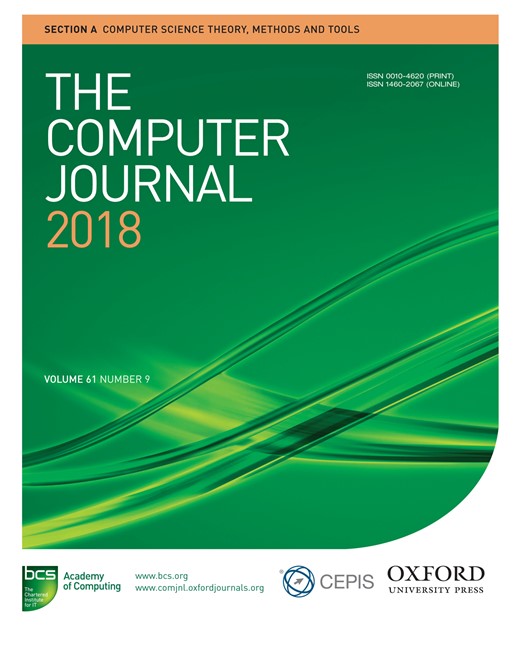-
Views
-
Cite
Cite
Shufeng Kong, Sanjiang Li, Michael Sioutis, Exploring Directional Path-Consistency for Solving Constraint Networks, The Computer Journal, Volume 61, Issue 9, September 2018, Pages 1338–1350, https://doi.org/10.1093/comjnl/bxx122
Close - Share Icon Share
Abstract
Among the local consistency techniques used for solving constraint networks, path-consistency (PC) has received a great deal of attention. However, enforcing PC is computationally expensive and sometimes unnecessary. Directional PC (DPC) is a weaker notion of PC that considers a given variable ordering and can thus be enforced more efficiently than PC. This paper shows that (the DPC enforcing algorithm of Dechter and Pearl) decides the constraint satisfaction problem (CSP) of a constraint language if it is complete and has the variable elimination property (VEP). However, we also show that no complete VEP constraint language can have a domain with more than two values. We then present a simple variant of the algorithm, called, and show that the CSP of a constraint language can be decided by if it is closed under a majority operation. In fact, is sufficient for guaranteeing backtrack-free search for such constraint networks. Examples of majority-closed constraint classes include the classes of connected row-convex constraints and tree-preserving constraints, which have found applications in various domains, such as scene labeling, temporal reasoning, geometric reasoning and logical filtering. Our experimental evaluations show that significantly outperforms the state-of-the-art algorithms for solving majority-closed constraints.




